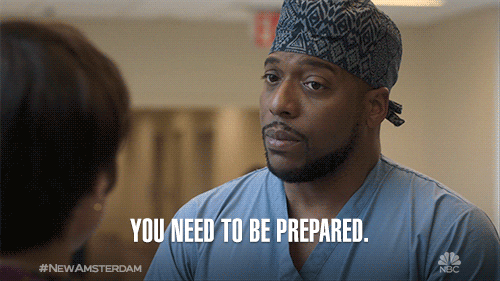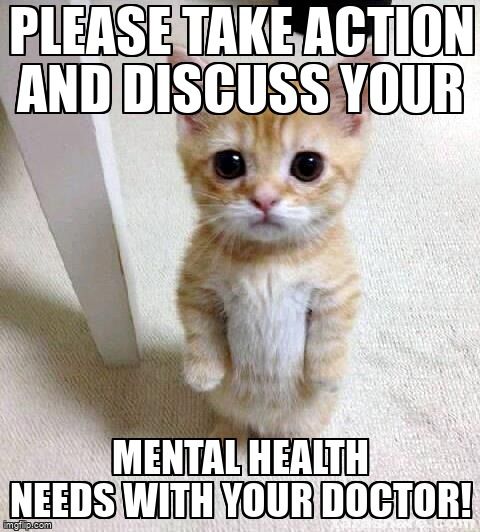Are you concerned about your mental health?Do youwant todiscuss it with your doctor but you're not sure how to initiate this conversation?

Be Prepared

Write down symptoms you're feeling and how your mood is affecting your day-to-day life.
Write down key personal information, including upsetting events in your past and any current major stressful events.
Make a list of medical information, including other physical or mental health conditions and the names and amounts of medications, herbal remedies, or supplements you take.
Take a family member or friend along to your appointment if you need someone there to support you.
Get Your Questions Ready

Ask your doctor any questions that apply to your situation:
What type of mental health concerns might I have?
Why can't I deal with my mental health concerns on my own?
How do you treat my type of mental illness?
Will counseling or psychotherapy help?
Are there medications that might help?
How long will treatment take?
What can I do to help myself?
Do you have any brochures or other resources that I can have?
What websites do you recommend?
Initiating The Conversation
Initiate the conversation by stating how you're feeling. Here are some examples of how to begin that conversation.
I think I may be depressed. I have been down lately and have lost interest in the things I used to enjoy. I feel tired all of the time. I am not well. I’m surviving. I’m hanging in there. I feel off.
I have been feeling anxious lately. Small things are causing me to freak out. I worry about everything. I am so worried that I cannot sleep at night. I have this feeling of dread and doom.
During The Conversation
Do
State your concerns as clearly and plainly as possible.
Be as open and honest with your doctor as possible.
Refer to your notes.
Try to understand the diagnosis process.
Lean on your support person if you brought them with you.
Don't
Suddenly deny your symptoms because you're uncomfortable with the conversation.
Give up before treatment has begun.
Forget to take notes about the conversation and review them after the appointment.
Quiz
You're having trouble keeping your mood stable from one day to the next. This is affecting your relationships and work. What should you do?
After Your Appointment
Follow up with the treatment plan.
Follow up with your doctor if you have questions.
Schedule another appointment if you weren't able to be completely honest with your doctor.
Be patient.
Request a second opinion if you're not pleased with your doctor's diagnosis or treatment plan.
Get more information about your diagnosis and treatment plan.

Take Action

Your feedback matters to us.
This Byte helped me better understand the topic.

